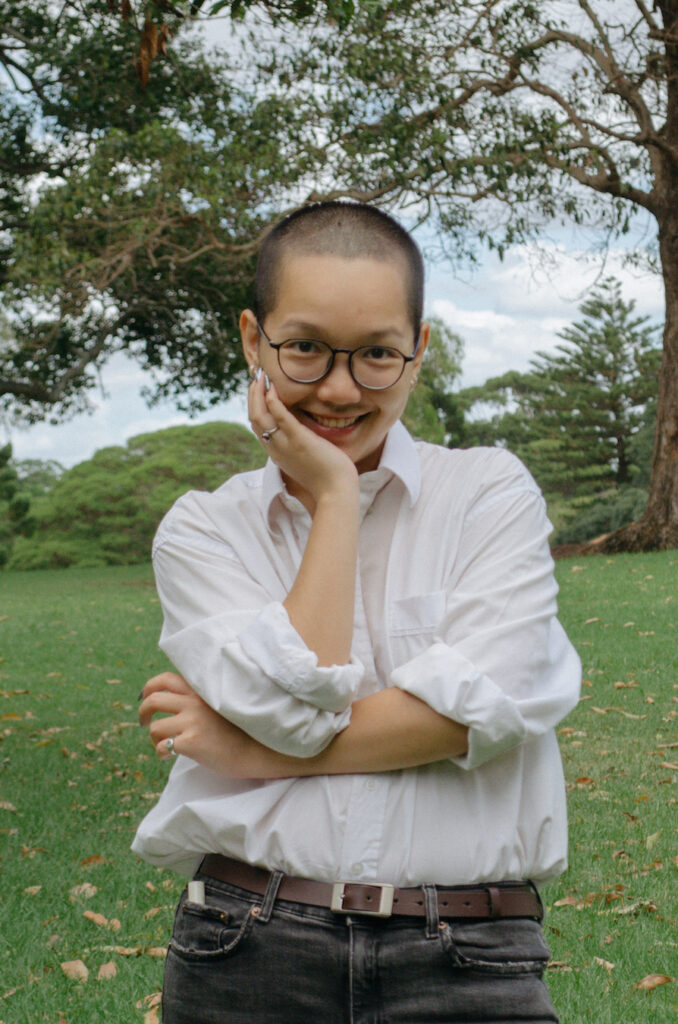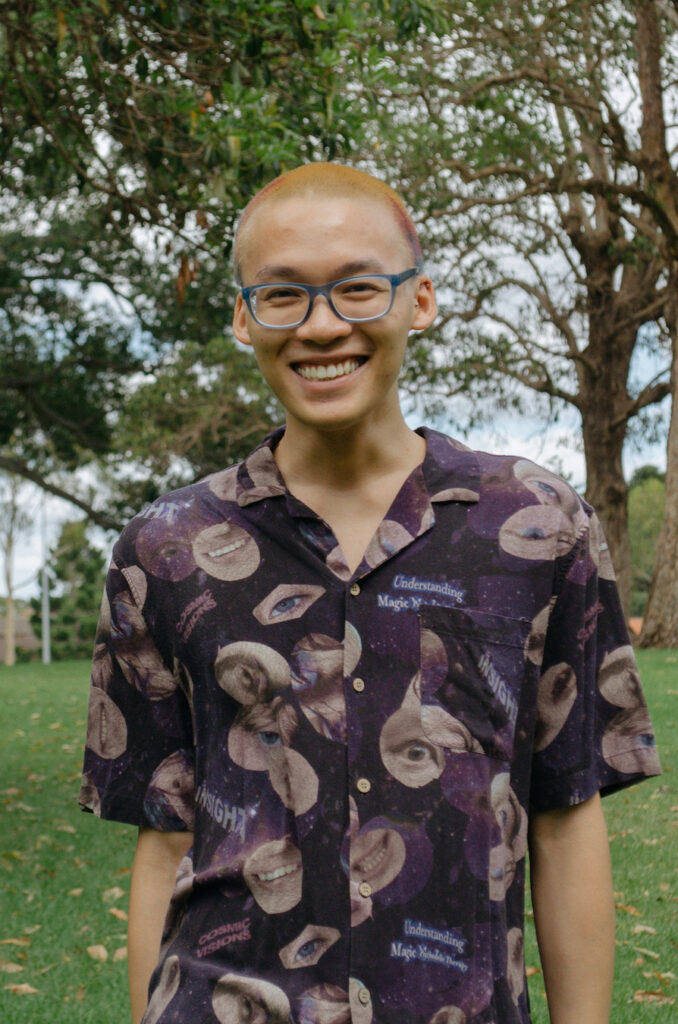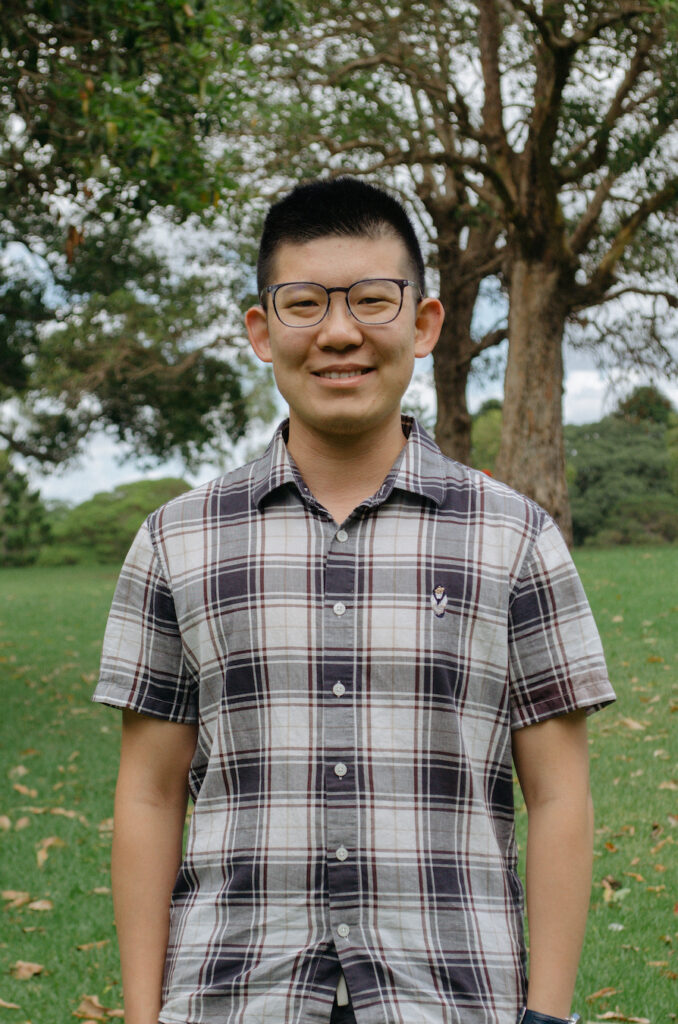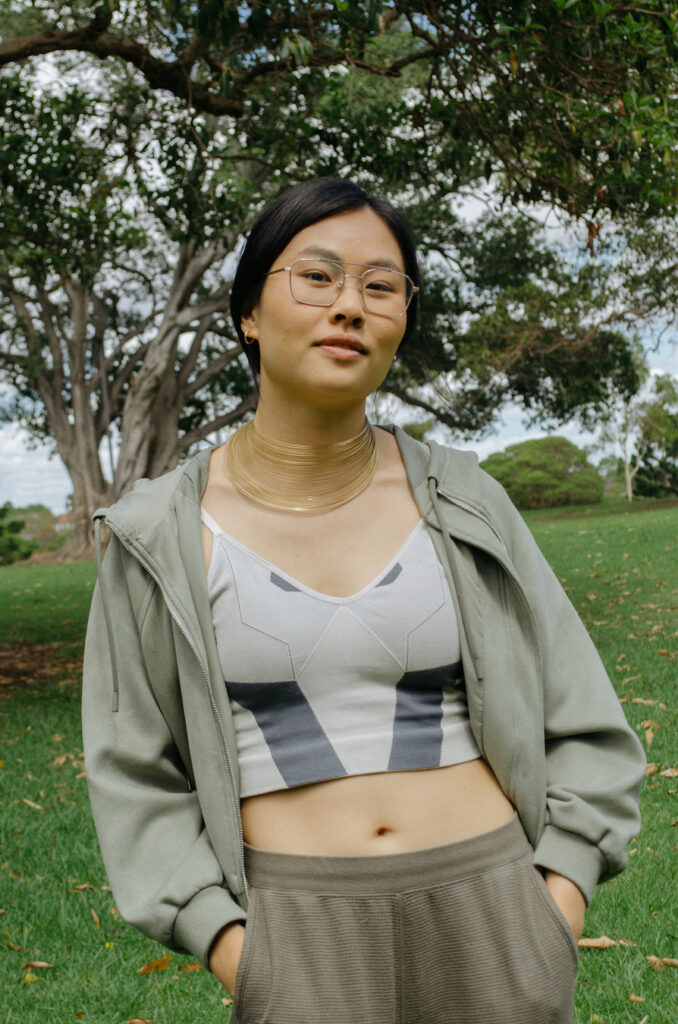by Brian Hioe
語言:
English
Photo courtesy of Stamped
New Bloom editor Brian Hioe spoke with René Hà, one of the founders of the Stamped zine, a space for migrant creatives navigating Australia’s immigration system.
Brian Hioe: Could you first introduce yourself for those who don’t know you?
René Hà: My name is René Hà. I am a Vietnamese national who went to university in Australia, pursuing higher education there. I learned media communications, which resulted in my obsession with media more in general. Which led to having my own little zine project.
BH: Could you talk about the zine, then?
RH: When it comes to the Stamped zine, it was something of my spiteful revenge project. When you are a communications major and you’re a migrant, the job market is incredibly harsh on you. From my experience of trying to apply for jobs and everything, it was Australian only.
Eventually, I was like, “Screw it!” I’m going to make a project which was not for Australians only. No Australians allowed—let’s make this space just for us. Especially within the Australian media landscape, when it comes to immigration, it is the most nasty thing you would ever encounter.
I guess that’s my small attempt to make a space in which we can feel like, “We do have our own agency, our own takes on this.” And so let’s just make it happen.
BH: How’s it been so far then, in terms of responses from people? It sounds like you’re trying to speak to the migrant experience.
RH: If I’m to be honest, I don’t really expect it to be anything big. Or a major life-changing work. I just wanted to put it out there, to facilitate something.
So far, when I put out a call, initially it was on Twitter as a hub. I got a lot of support, I saw that you retweeted it, and saw the initial phase of it.
But I guess though a lot of people seemed to be interested, to commit and to submit through something was quite an interesting question as well.
We all know the hurdles. And especially when we make a media project, I also think about how we need to make something to start the conversation.
It’s all volunteer-run so far. Nobody is funding us, we’re just trying to do our thing. How can we make it to be something accessible for people, as well? The hurdles here are also about language and the tone of the zine. Yes, I do seem to have people very interested in it, but I want more people to join in as a collective effort.
I’m pretty comfortable having some friends who just agree to be onboard. We’re trying to draft our second issue now.
The members of Stamped. Clockwise from the top-left, René Hà, Kiên Bùi, Cherry Zheng, and Ray Zhou. Photo courtesy of Stamped
BH: Can you talk a bit about what you understand as the target audience of the zine, then? You mentioned wanting to create spaces and so forth.
RH: Being a migrant always gives people a little hesitation to talk about anything regarding their choice of migration. Because that’s always a little paradox that we have, we chose to do this—ergo we should take it up.
And it’s very frustrating, because you have different migrant groups. You have international students, you have skilled workers, you have refugees, and all that. They’re all on a visa status. But the situation they are in is completely different.
The entire aesthetic of it was to make it a little passport. It’s very in your face—that this is the entire procedure (of requesting a visa) we have to go through. When it comes to that, I really want the project to invite people to be more open with their experiences of the bureaucracy of dealing with the paperwork.
When I made the zine, yes, it was obviously left-leaning, because our stance is that we hate borders. At the same time, who would be willing to engage in this conversation? (Would it be) People who are already in academia or familiar with the activist space? etc.
BH: Why the decision to go with a zine? Sometimes with a zine, you can have a smaller audience, but also be very unique and have a lot of control over the medium.
RH: That was the idea as well. There have been a number of migrant projects in Australia. A lot of it tends to be political aid. Political training in advocacy. Or things that assist queer migrants, young people, and all that.
For me, to open up a space using literature is something that is helping, to show somewhere else people can come to as well. I do think it has hit the right network so far, it just is reaching out to migrants that are a bit distant to that sort of conversation we have today.
BH: How is it been distributed to date then?
RH: Because we only have one social media channel, which is Instagram, we do offer it online freely. And people do offer to buy our zines. We did manage to sell a dozen, which is cute. It’s like, “Ah! You really want to get it.”
Because it was a debut, we decided to see what the response was like to decide if we should continue it. And since the response has been good, we think we should continue doing it.
And I’ve been pretty ambitious about trying to make it as multilingual as we can. Obviously, most of the literature is English, but our editorial board so far can support writing in Vietnamese and Mandarin Chinese.
BH: What are plans for what is upcoming issue, then?
RH: The approach for the second issue is that I really want to see more commentaries from people. For the first issue, because “Limbo” as a theme seemed to be a bit vague, in the end, I got a fair amount of submissions that tended to be biographical. People sharing their experience and how it is. But for the second issue, I wanted it to be more critical. For this specific issue to take a comment on a policy or phenomenon, for example.
So it’s about promotion and timing. A lot of people that we target are like, “Okay, we also have nine to five jobs.” They don’t have the time just to write or submit something. We just have to be more prepared with the timeline.
BH: Is there anything you’d like to say in conclusion?
RH: I really wonder how else to open up this space for people. Because I’m also planning on opening an anonymous submission box. It seems to be safer for people to do so. Through that one channel, Instagram, hopefully it could spread out to people. Trying to gain more autonomy in our narrative.





